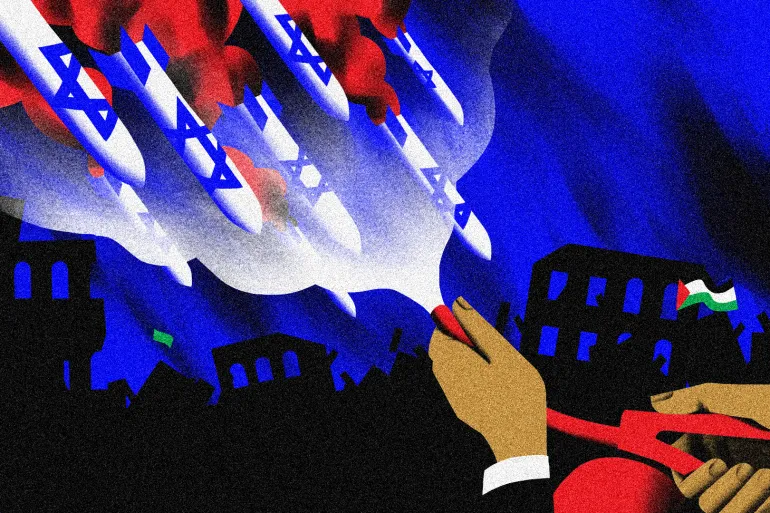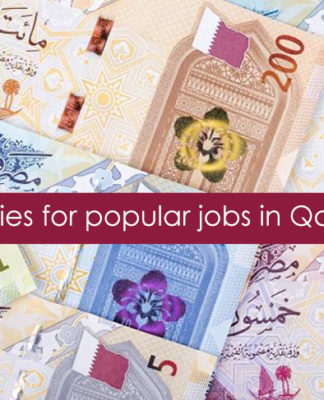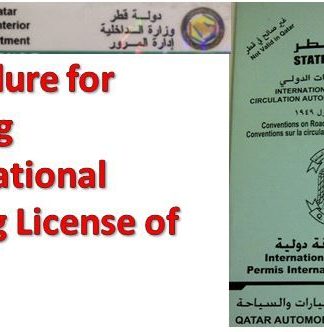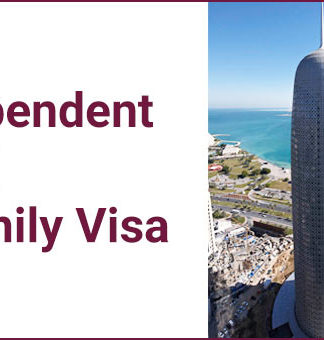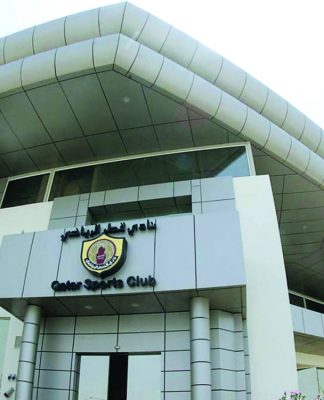Israel and Palestine: Is war the only way out?
A ground invasion and a longer, more enduring war are likely, and an Israeli attempt to expel Palestinians from Gaza is possible. But there’s still room for diplomacy too.
[Nataliia Shulga/Al Jazeera]
[Nataliia Shulga/Al Jazeera]
By Urooba Jamal
Published On 28 Oct 2023
28 Oct 2023
The boy appears to be convulsing, wide-eyed and covered in ash and debris. Once a doctor embraces him, the boy, whose name is Muhammed Abu Louli, and who just survived an Israeli air strike on the Gaza Strip, scrunches his terrified face and lets out a long wail.
On another evening in the besieged territory, veteran Al Jazeera journalist Wael Dahdouh is live on air when he gets the news: An Israeli strike has wiped out his family, including his wife, son, daughter and grandchild.
KEEP READING
list of 4 items
list 1 of 4
Taiwan takes security lessons from Hamas, Ukraine surprise attacks
list 2 of 4
Internet, phone services return to Gaza after communications blackout
list 3 of 4
Netanyahu says war entering ‘second stage’ as Israeli troops push into Gaza
list 4 of 4
Israeli bombardment intensifies as Gaza connectivity returning
end of list
Throughout Gaza, doctors work to the bone in the blockaded enclave’s crumbling hospitals, passing out in shock when they see their own maimed, bloodied family members among the deceased.
And tents have cropped up in the southern part of the strip, shelters for those fleeing Israel’s indiscriminate bombing, with Palestinians saying the sight is eerie, reminiscent of the Nakba in 1948 when many were forced to leave their homes during Israel’s founding.
These are the scenes in Gaza for weeks now as Israel’s retaliatory attack following Hamas’s incursion onto Israeli soil on October 7 runs into its fourth week.
The casualties are mounting heavy, with the death toll in Gaza topping 7,000 people, many of them children. Israel has been amassing hardware and forces and carrying out brief incursions to set the board for a larger ground offensive on the impoverished enclave.
But is war the only way this will play out? Or are there other options?
The short answer: A longer, more enduring war exacted through a ground invasion is still very much in the cards. Mediating the end of the conflict through diplomacy is also a possibility, but one studded with a number of thorny issues centred on the hegemony of Western power. A third and most extreme scenario would be the reoccupation of the Gaza Strip – or the expulsion of Palestinians from the territory entirely.
Al Jazeera’s Wael Dahdouh at the funeral of his family members killed in an Israeli strike
Al Jazeera’s Wael Dahdouh at the funeral of his family members killed in an Israeli strike [Atia Darwish/Al Jazeera]
The ‘bloodiest type of warfare’
It would be like the battles of Stalingrad, Grozny or Mariupol.
The deadly, drawn-out sieges in the 1940s Soviet Union, 1990s Chechnya, and last year in Ukraine, respectively, are the closest examples of what a ground invasion of Gaza would look like, according to Zoran Kusovac, a strategic analyst and consultant.
Sign up for Al Jazeera
Week in the Middle East
Catch up on our coverage of the region, all in one place.
E-mail address
Sign up
By signing up, you agree to our Privacy Policy
That scenario would mean a prolonged war – which some analysts believe is exactly what Israeli Prime Minister Benjamin Netanyahu wants.
Netanyahu’s desire for a protracted conflict is to deflect from the years-long corruption cases he faces, as well as the weekly protests against his government’s overhaul of Israel’s judicial system, said Haim Bresheeth, a professor at the School of Oriental and African Studies (SOAS) in London and author of An Army Like No Other: How the Israel Defense Forces Made a Nation.
“He wants it to be very long [so that he doesn’t] go to jail. And after the war, who will have the energy to put him into jail?” Bresheeth told Al Jazeera, saying that Netanyahu also wants to prevail as “the hero destroying Hamas”.
“He’s not concerned about the people who were killed by the attackers on the seventh of October. And he’s not concerned about the prisoners of war.”
But a prolonged war involving a total ground invasion of Gaza would be akin to urban warfare, the bloodiest type of warfare, said Kusovac.
“Urban warfare in Gaza would be horrendous in terms of civilian casualties,” he told Al Jazeera.
If such a ground invasion was to occur, it would likely begin at night, as Israeli forces have an advantage in night training, Kusovac said.
But Gaza is also well-defended with its network of tunnels, which Hamas knows inside and out, and which could be planted with mines should the Israelis try to penetrate them, he said.
Still, Israel is equipped with sophisticated technology like robots that could enter these tunnels, Kusovac said, which aren’t only Hamas outposts, but also how some food and other vital supplies enter the blockaded territory.
The scale of this conflict is already different, when compared with past Israeli assaults on Gaza and the disproportionate amount of military use against Palestinians, said Loreley Hahn Herrera, a lecturer at SOAS’s Centre for Palestine Studies.
Play Video
Video Duration 01 minutes 58 seconds
01:58
Health system in Gaza in a state of collapse
The response to Hamas’s attack has been a “real act of vengeance from Israel”, she said.
“It’s really [an] offensive based on carpet bombing Gaza,” Herrera told Al Jazeera.
Zachary Foster, a historian of Palestine and a doctoral alumnus from Princeton University, said the scale of violence against Palestinians when compared with previous deadly assaults against Gaza in 2008 and 2014 is staggering.
In 2008, 1,385 Palestinians were killed over 22 days, while in 2014 Israel’s 50-day bombardment killed 2,251 Palestinians, according to the United Nations Office for the Coordination of Humanitarian Affairs.
In the five days following October 7, Israel dropped over 6,000 bombs on the densely populated territory, more than it did in 50 days in 2014. Gaza’s death toll as a result 20 days into the current conflict is numerous times higher than in the past.
Previously, Israel targeted specific buildings that left surrounding ones intact, whereas now Israel has been levelling entire streets and neighbourhoods to the ground, Foster said.
“[There’s] no attempt whatsoever to distinguish between military and civilian personnel,” he told Al Jazeera.
A total siege on Gaza through the cutting off of food, water and electricity lasting as long as it has in this conflict is also fundamentally new, Foster said.
The historian is also keeping a record of Israeli politicians and pundits who have expressed “genocidal intent” since the events of October 7 – also unprecedented, he said, with his list naming 24 people as of October 20.
A Palestinian man carries a wounded baby that he recovered from the rubble of a destroyed area following Israeli air strikes
A Palestinian man carries a wounded baby that he recovered from the rubble of a destroyed area following Israeli air strikes in Gaza City [Mohammed Saber/EPA-EFE]
Diplomacy: Now or ‘after another 5,000 dead civilians’?
Still, Foster said that each day that passes that Israel chooses not to pursue a ground invasion makes it less likely that it will.
A protracted war would lead to huge Israeli military personnel losses and could widen the scope of the war with Hezbollah in southern Lebanon in a much more serious way, which Israel will want to avoid, he said.
Additionally, Hamas would be ready to engage in guerilla warfare, through its use of its “booby-trapped” tunnels, “a nightmare scenario” for Israel, Foster added.
A diplomatic solution is, therefore, the sole way the conflict will progress, he argued.
“I think it’s the only way it will play out,” he said. “The only question is, will the diplomatic solution come now? Or will it come after another 500 or 5,000 dead civilians?”
In order for both sides to come to the negotiating table, they will each have to make compromises, Foster said.
Israel will likely demand a release of the captives Hamas took on October 7 and a cessation of rocket attacks, while Hamas will urge for a loosening of the blockade on Gaza and a cessation of bombing on civilian areas, he said.
But the road to diplomacy appears lengthy.
Arab countries’ normalisation with Israel in recent years has prevented stronger condemnations of Israel’s actions in Gaza, which is thereby hindering a possible diplomatic solution and risks escalating the crisis throughout the region, said the analysts.
Arab leaders should be held accountable for abandoning the Palestinian cause, Herrera said.
There’s been limited success in the international arena as well, with the UN Security Council unable to pass resolutions for a ceasefire due to vetoes.
US President Joe Biden’s militaristic approach to foreign policy is to blame, along with Europe trailing in the lead of an “American agenda”, argued Bresheeth.
“Biden is a conflictual politician who is opposed to discussing any other [solutions] than military attacks,” he said, adding that the US is likely seeing this war as a profiteering one, an opportunity to sell more arms.
“The forces that want a peaceful solution are all countries that don’t have enough sway in the UN,” Bresheeth added.
Western leaders, meanwhile, have paid visits to Israel and been unequivocal in their support for the country’s “right to defend itself”.
Play Video
Video Duration 01 minutes 30 seconds
01:30
UN chief decries ‘misinterpretations’ of Hamas comments
‘Impossible to have a land without a people’
A third possible scenario could change the entire makeup of the Gaza Strip, either through Israeli reoccupation of the territory, or the expulsion of all Palestinians there.
“I think the interest of Israel reoccupying the territory of the Gaza Strip, basically comes down to Israel’s aims since the 1940s, [since the] establishment of the State of Israel, which is to have the most amount of land with the least amount of Palestinians,” said Herrera, arguing that it’s part of Israel’s mission to “complete the ethnic cleansing of Palestine”.
Additionally, Israel’s evacuation orders for Palestinians to move south of the strip near the border crossing with Egypt, while it continues to bomb the southern sector and the crossing itself, “really speaks to them wanting to expel Palestinians once more, and take most of the land”, she added.
But Palestinians have been resistant to the idea of evacuating the Strip, with families who had left for the south also returning to their homes in the northern parts of Gaza, preferring instead to die in their homes as Israeli bombardment continues unabated.
Anis Mohsen, the editorial director of the Institute for Palestine Studies’ Arabic-language journal, spoke to a friend in Gaza who is one among many who has returned from the south of the Strip.
His friend’s resolve to move south changed after strikes hit places of refuge there, like hospitals and churches, he said.
“Impossible to have a land without a people, so people should stay in their land,” is the sentiment among Palestinians, Mohsen told Al Jazeera.
A child who was injured in Israeli bombardment is carried to the entrance for emergency treatment at Nasser hospital in Khan Yunis
A child who was injured in Israeli bombardment is carried to the entrance for emergency treatment at Nasser Hospital in Khan Younis in the southern Gaza Strip [Mahmud Hams/AFP]
Further, Egypt has refuted the idea of allowing Palestinians to move into its Sinai territory, stating it will lead to their expulsion from Gaza.
According to Kusovac, clearing Gaza entirely is still an extreme right-wing idea among Israel’s public – but one that has been gaining ground in the last few weeks.
And it’s consistent with Netanyahu’s thinking: if carried out, there would be no more Hamas, no more rockets, while the Israeli prime minister would emerge as the country’s saviour, able to offer a razed-down Gaza as territory for more Israeli settlements, he explained.
Lessons from history
In whichever way the conflict will progress, Palestinians in Gaza will be worse off than ever before, argued Foster.
“The key lesson to learn from the past five wars fought between Israel and Hamas in Gaza is that you can expect the innocent people of Gaza will be forgotten,” he said.
The blockade is not likely to be loosened, the vast majority of people will remain dependent on food handouts, there will be electricity shortages and people will continue to suffer from multiple public health crises, he said.
“I think what history teaches us is that the world has basically forgotten the people in Gaza and [have deemed] them to a life living in an open-air prison,” Foster said.
But a changing public discourse in the West on the plight of Palestinians is also gaining ground, said Herrera, as the daily realities of war are captured online by Palestinians themselves.
And at the end of the day, there will be no real winners, suggested Bresheeth.
“Nothing good can come out of this situation, and the people responsible are not just the Israelis, but also their paymasters and supporters in the West, who are egging them on to this genocide,” he said.
Play Video
Video Duration 01 minutes 50 seconds
01:50
Freed Israeli captive talks about abduction by Hamas
SOURCE: AL JAZEERA














